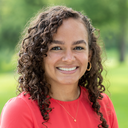Composing a Public Syllabus: Writing for Movement-Building, Activism, and Social Justice
In Person; Mar. 7-Mar. 9
Facilitation Team:
 |
 |
|---|---|
| Erin Green | Gabrielle Isabel Kelenyi |
Abstract: This collaboration centers on the examination of genres of activism to construct a public-facing syllabus that explores the role of writing in activism. Public-facing syllabi have been a prominent form of political education seeking to engage communities outside of academia (Dillon, 2018). Our public syllabus will consist of three units that we argue are invaluable for social justice movements: technical communication, multimodal communication, and oral communication. All three contribute to the narrative strategy of movement-building. In a moment where movements for social justice are recognizable, prevalent, and constantly evolving (e.g., #BLM, #MeToo, #SayHerName, Indigenous Land Rights movement, Environmental/Climate Justice, etc.), this project highlights how various forms of communication contribute to the strategies and tactics of activism. It will provide organizers, activists, community members, and teachers ways into studying, teaching, and enacting writing for movement-building, activism, and social justice.
What Draft Deliverable will be Presented at the Conference Showcase? This project will provide community members, students, and teachers ways into studying, teaching, and enacting writing for movement-building, activism, and social justice via a living public syllabus. The syllabus would feature texts, media, and activities that seek to highlight writing’s vital role in movement-building. On the final day of the conference, we would plan to have a draft syllabus prepared to share with other attendees. We would welcome feedback from other groups as well as submissions for other open access materials to feature on the syllabus via a survey link housed on the syllabus.
Who Should Apply to Participate? Public syllabi are collections of materials organized to spark conversation, facilitate learning, and unpack complex themes and issues with and for intergenerational and diverse learners. Therefore, we are looking to collaborate on our project with dedicated activist-educators and lifelong learners from various backgrounds and communities, of various abilities, and with different experiences and expertise. For example, public syllabi can be presented in a variety of forms, but they must be accessible; therefore, our project would benefit from participants with artistic skills, expertise in (digital) accessibility and design, and/or website design skills. Furthermore, because our public syllabus will strive to address issues of intersectional social justice, we’d also welcome participants with experience community organizing and participating in activism. Finally, for our public syllabus to truly be usable by a diverse audience from various communities, we will prioritize featuring open access materials. As such, folks who have experience in finding, developing, and utilizing open educational resources (OER) would be of great benefit to this particular project.
What Do Participants Need to Prepare? Since we will spend some time reviewing and analyzing sample public syllabi, we’re requesting that participants bring an example of a public syllabus that they like to Day One of the workshop. The syllabus can be in any format or modality, and participants are not required to have read the syllabus before day one.
What Happens After the Conference? After the conference, our public syllabus will remain available for people to view and offer recommendations. We plan to use Google Forms or Qualtrics as a way for people to submit suggestions for new OERs for the syllabus. When contributors submit their recommendations, they will have the option to be recognized on the public syllabus by name. Conference participants will share the responsibility to periodically review and update the public-facing document with the submitted suggestions twice a year. We plan to discuss this responsibility and revise this plan as necessary with participants during the conference in alignment with various Watson Conference Commitments. Finally, workshop participants will have the opportunity to explore publishing the syllabus in an open-access journal together or making it available in an online space with more traffic.
